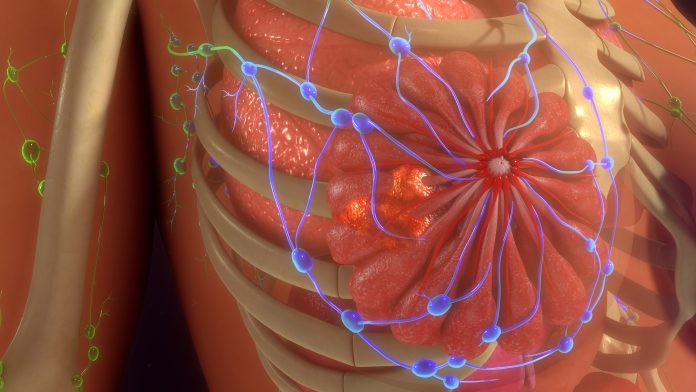
Barcelona, Spain-based molecular diagnostic startup Reveal Genomics announced today it has entered a collaboration with Dana-Farber Cancer Institute to evaluate Reveal’s HER2DX test across three different clinical studies of early-stage HER2+ breast cancer. Cumulatively, the three trials will provide further information to support the test’s clinical utility in different scenarios by accessing the data of more than 500 patients.
“We are thrilled to initiate this research initiative with the Dana-Farber Cancer Institute, one of the most prestigious oncology centers globally. I am sure that it will provide us with more data confirming what has already been demonstrated, namely the reliability and accuracy of our HER2DX diagnostic test,” said Dr. Patricia Villagrasa-Gonzalez, CEO and co-founder of Reveal in a press release.” We are very grateful for the speed with which the agreement has been carried out and for the imminent access to all this information, which is undoubtedly a privilege. I am sure that more collaborative projects are still to come.”
According to Reveal, the clinical studies chosen for the work with Dana-Farber are ones that have highlighted the concept that less-toxic therapies for HER2+ breast cancer can be employed for a subset of patients. The intent is to demonstrate and refine the HER2DX test to help identify the best treatment strategy in a setting where uncertainty about the best clinical decision still exists.
HER2DX is a specialized genomic test for HER2+ breast cancer. The 27-gene plus clinical feature-based classifier predicts the risk of HER2+ breast cancer recurrence in newly diagnosed patients and the likelihood that they will respond to anti-HER2 treatment. The diangostic stratifies patients into risk groups using an algorithm that was derived from a dataset of 434 patients and validated in an external dataset of 268 patients. The algorithm has also been validated using data of more than 1,000 patients available from public datasets.
HER2+ clinical trials to refine HER2DX
The three clinical trials to be evaluated with the HER2DX diagnostic are the APT, the ATEMPT, and the DAPHNE trials.
The APT clinical trial, published in the New England Journal of Medicine in 2015, demonstrated that a de-escalation treatment strategy based on weekly paclitaxel during three months and one year of trastuzumab is highly efficacious for a large proportion of patients with Stage 1 disease.
The ATEMPT clinical trial, published in the Journal of Clinical Oncology in 2021, demonstrated that 17 cycles of the anti-HER2 antibody drug-conjugate trastuzumab emtansine (T-DM1, Kadcyla, Roche) is highly useful for a large proportion of patients with stage 1 disease, and can help them avoid alopecia when compared to paclitaxel.
Finally, the DAPHNE clinical trial, presented at the last San Antonio Breast Cancer Meeting in 2021, demonstrated that a de-escalation of the amount of chemotherapy is feasible in patients with stage 2 or 3 treated with neoadjuvant paclitaxel, trastuzumab, and pertuzumab who achieve a pathological complete response at the surgery.
“We are excited to be able to explore HER2DX in our trials of patients with early stage HER2+ breast cancer. This assay may be able to help us personalize treatment to the individual patient by better understanding prognosis and being able to predict benefit to HER2-directed therapy”, said Sara Tolaney, MD, chief of division of Breast Oncology and associate director of the Susan F. Smith Center for Women’s Cancers at Dana-Farber Cancer Institute.











